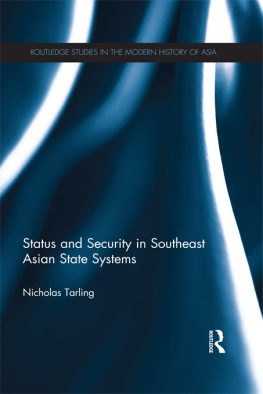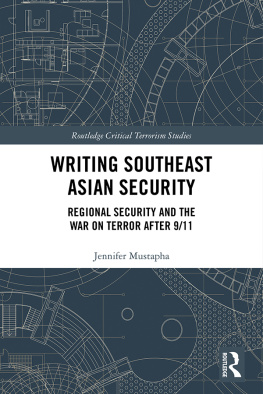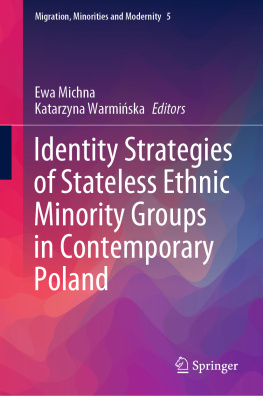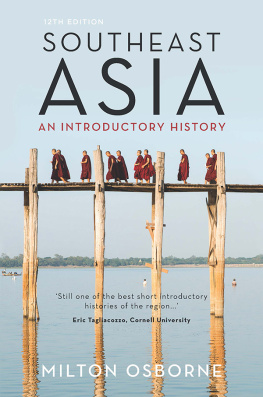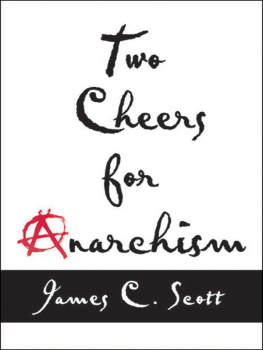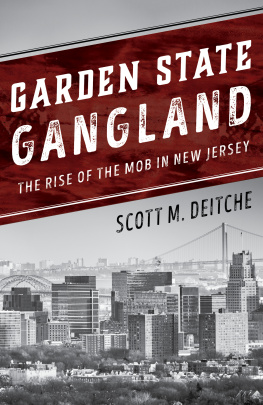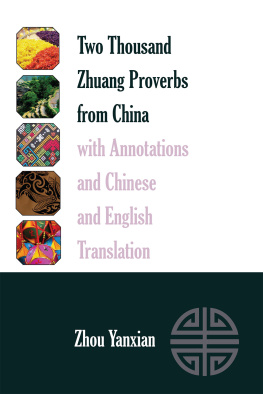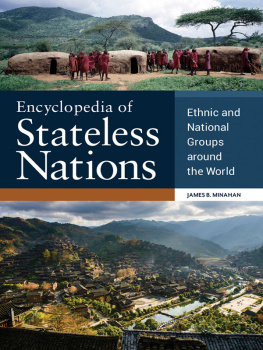Yale Agrarian Studies Series
James C. Scott, series editor
The Agrarian Studies Series at Yale University Press seeks to publish outstanding and original interdisciplinary work on agriculture and rural societyfor any period, in any location. Works of daring that question existing paradigms and fill abstract categories with the lived-experience of rural people are especially encouraged.
JAMES C. SCOTT, Series Editor
The Art of
Not Being Governed
An Anarchist History of Upland Southeast Asia
James C. Scott

Published with assistance from the Mary Cady Tew Memorial Fund.
Copyright 2009 by Yale University.
All rights reserved.
This book may not be reproduced, in whole or in part, including illustrations, in any form (beyond that copying permitted by Sections 107 and 108 of the U.S. Copyright Law and except by reviewers for the public press), without written permission from the publishers.
Designed by James J. Johnson and set in Ehrhardt type by Tseng Information Systems, Inc. Printed in the United States of America.
Library of Congress Cataloging-in-Publication Data
Scott, James C.
The art of not being governed: an anarchist history of upland Southeast Asia/James C. Scott.
p. cm.
Includes bibliographical references and index.
ISBN 978-0-300-15228-9 (cloth: alk. paper) 1. EthnologySoutheast Asia. 2. PeasantrySoutheast AsiaPolitical activity. 3. Southeast AsiaPolitics and government1945. 4. Southeast AsiaRural conditions. I. Title.
DS523.3.S36 2009
305.800959dc22
2009003004
A catalogue record for this book is available from the British Library.
This paper meets the requirements of ANSI/NISO Z39.48-1992 (Permanence of Paper).
10 9 8 7 6 5 4 3 2 1
It is said that the history of peoples who have a history is the history of class struggle. It might be said with at least as much truthfulness, that the history of peoples without history is a history of their struggle against the state.
Pierre Clastres, La socit contre ltat
Contents
Preface
Zomia is a new name for virtually all the lands at altitudes above roughly three hundred meters all the way from the Central Highlands of Vietnam to northeastern India and traversing five Southeast Asian nations (Vietnam, Cambodia, Laos, Thailand, and Burma) and four provinces of China (Yunnan, Guizhou, Guangxi, and parts of Sichuan). It is an expanse of 2.5 million square kilometers containing about one hundred million minority peoples of truly bewildering ethnic and linguistic variety. Geographically, it is also known as the Southeast Asian mainland massif. Since this huge area is at the periphery of nine states and at the center of none, since it also bestrides the usual regional designations (Southeast Asia, East Asia, South Asia), and since what makes it interesting is its ecological variety as well as its relation to states, it represents a novel object of study, a kind of transnational Appalachia, and a new way to think of area studies.
My thesis is simple, suggestive, and controversial. Zomia is the largest remaining region of the world whose peoples have not yet been fully incorporated into nation-states. Its days are numbered. Not so very long ago, however, such self-governing peoples were the great majority of humankind. Today, they are seen from the valley kingdoms as our living ancestors, what we were like before we discovered wet-rice cultivation, Buddhism, and civilization. On the contrary, I argue that hill peoples are best understood as runaway, fugitive, maroon communities who have, over the course of two millennia, been fleeing the oppressions of state-making projects in the valleysslavery, conscription, taxes, corve labor, epidemics, and warfare. Most of the areas in which they reside may be aptly called shatter zones or zones of refuge.
Virtually everything about these peoples livelihoods, social organization, ideologies, and (more controversially) even their largely oral cultures, can be read as strategic positionings designed to keep the state at arms length. Their physical dispersion in rugged terrain, their mobility, their cropping practices, their kinship structure, their pliable ethnic identities, and their devotion to prophetic, millenarian leaders effectively serve to avoid incorporation into states and to prevent states from springing up among them. The particular state that most of them have been evading has been the precocious Han-Chinese state. A history of flight is embedded in many hill legends. The documentary record, although somewhat speculative until 1500, is clear enough after that, including frequent military campaigns against hill peoples under the Ming and Qing dynasties and culminating in the unprecedented uprisings in southwestern China in the mid-nineteenth century that left millions seeking refuge. The flight from both the Burmese and Thai slave-raiding states is also amply documented.
My argument will, I hope, have some resonance beyond the already broad swath of Asia with which it is immediately concerned.
The huge literature on state-making, contemporary and historic, pays virtually no attention to its obverse: the history of deliberate and reactive statelessness. This is the history of those who got away, and state-making cannot be understood apart from it. This is also what makes this an anarchist history.
This account implicitly brings together the histories of all those peoples extruded by coercive state-making and unfree labor systems: Gypsies, Cossacks, polyglot tribes made up of refugees from Spanish reducciones in the New World and the Philippines, fugitive slave communities, the Marsh Arabs, San-Bushmen, and so on.
The argument reverses much received wisdom about primitivism generally. Pastoralism, foraging, shifting cultivation, and segmentary lineage systems are often a secondary adaptation, a kind of self-barbarianization adopted by peoples whose location, subsistence, and social structure are adapted to state evasion. For those living in the shadow of states, such evasion is also perfectly compatible with derivative, imitative, and parasitic state forms in the hills.
My argument is a deconstruction of Chinese and other civilizational discourses about the barbarian, the raw, the primitive. On close inspection those terms, practically, mean ungoverned, not-yet-incorporated. Civilizational discourses never entertain the possibility of people voluntarily going over to the barbarians, hence such statuses are stigmatized and ethnicized. Ethnicity and tribe begin exactly where taxes and sovereignty endin the Roman Empire as in the Chinese.
Usually, forms of subsistence and kinship are taken as given, as ecologically and culturally determined. By analyzing various forms of cultivation, particular crops, certain social structures, and physical mobility patterns for their escape value, I treat such givens largely as political choices.
The mountains as a refuge for state-fleeing people, including guerrillas, is an important geographical theme. I develop the idea of the friction of terrain, which is a new way of understanding political space and the difficulties of state-making in premodern societies.
Im the only one to blame for this book. I did it. Lets get that out of the way before I begin making apologies and trying, in vain, I know, to make a few preemptive strikes against some of the criticism I can, even as I write this, see bearing down on me.
Ive often been accused of being wrong but rarely of being obscure or incomprehensible. This book is no different. Theres no denying that I make bold claims about the hill peoples of mainland Southeast Asia. I think, naturally, that my claims are broadly correct, even if I may be mistaken in some particulars. Judgment of whether I am right is, as always, now out of my hands and in that of my readers and reviewers. There are, however, three things about these claims that I wish to assert emphatically. First, there is nothing original here. I repeat, there is not a single idea here that originates with me. What I surely have done is to see a kind of immanent order or argument in a good many of the sources I canvassed and to draw that argument out to see how far it would take me. The creative aspect, if there was any, was to make out this gestalt and to connect the dots. I realize that some of those whose arguments and speculations I have made use of will think I have gone too fara few of them have told me so and, mercifully for me, others are no longer in a position to complain. They are no more responsible for what I have done with their ideas than I will be for what use others make of what I have written here.
Next page







